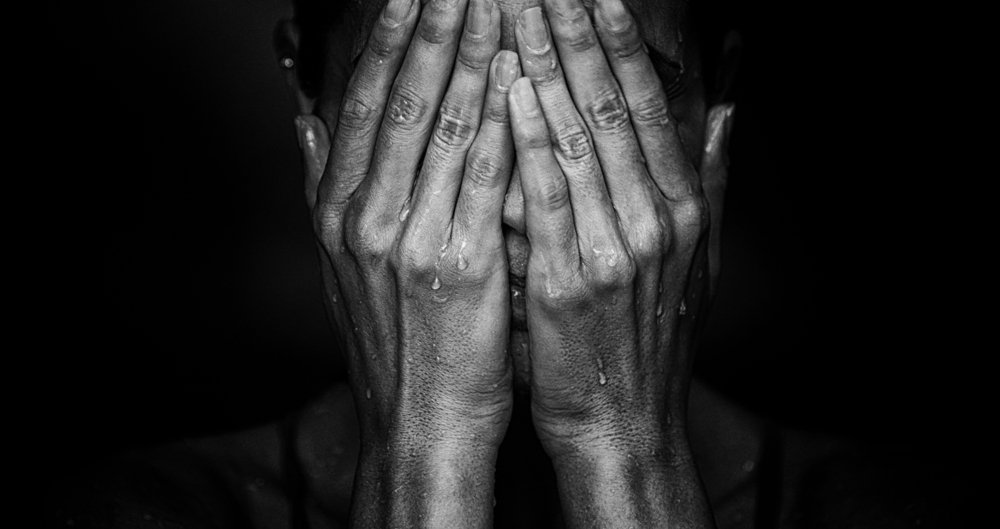Exploring Links Between PTSD, Trauma, and Lupus

 Can trauma and extreme stress increase someone’s risk of being diagnosed with lupus? For more than a decade, I felt there is a clear link. I was happy recently to see this concept being studied by a team of physicians funded by the National Institutes of Health. The study, published in October 2017, explored whether significant trauma and/or post-traumatic stress disorder (PTSD) had a damaging effect on an individual’s risk of developing lupus.
Can trauma and extreme stress increase someone’s risk of being diagnosed with lupus? For more than a decade, I felt there is a clear link. I was happy recently to see this concept being studied by a team of physicians funded by the National Institutes of Health. The study, published in October 2017, explored whether significant trauma and/or post-traumatic stress disorder (PTSD) had a damaging effect on an individual’s risk of developing lupus.
By using a combination of diagnoses, specific PTSD criteria, and self-reporting of experience, researchers for this study followed 54,763 women for 24 years. These individuals were screened to determine if they had a positive diagnosis of lupus based on the definition set forth by the American College of Rheumatology. To do this, the participants were given a short screening test for PTSD from the Diagnostic and Statistical Manual of Mental Disorders, Fourth Edition (DSM-IV). They also were given the Brief Trauma Questionnaire — a 10-question test that helps doctors and researchers determine if someone has been exposed to traumatic events.
Of the participants, 73 were diagnosed with lupus during the 24-year study period. So, the researchers’ next step was to establish if there was a link between the individual’s traumatic experiences (if any) and her diagnosis.
This is what they found:
- Women who met the diagnostic benchmarks for having PTSD were 2.94 times more likely to develop lupus.
- Regardless of whether PTSD symptoms were present, women who have experienced trauma were 2.87 times more likely to develop lupus.
The study concludes there is growing evidence that trauma and associated stress responses may lead to autoimmune disease such as lupus.
My take on the study
It may sound strange, but I almost felt vindicated when I read this study. About to graduate as a registered nurse and begin my dream of volunteering overseas in the medical field, my vision was cut short within a few seconds back in 2001. While crossing a stretch of road in my then-hometown of Fort Lauderdale, I was struck by a drunken driver’s pick-up truck. It took almost a year to recover from my physical injuries … and much longer to recover from the mental anguish.
I had to leave school, spending the first few weeks after being struck in a trauma intensive care unit, followed by rehabilitation to slowly start walking again. I had severe injuries, including multiple broken ribs which had lacerated my liver into four sections, causing severe internal bleeding. During my time in the intensive care unit, I suddenly got sick. At first, the physicians thought it was related to the vehicular incident. But in addition to strange fevers, a rash, severe joint pain and crushing fatigue, I had a small stroke.
Eventually, an infectious disease specialist and rheumatologist were brought in to see me and I was given systemic lupus erythematosus diagnosis within three weeks.
I learned over time that my situation wasn’t unique. Through my LupusChick community, I have had the pleasure of speaking with hundreds of women over the past 10 years who have been diagnosed with lupus. I noticed a trend in their stories. Many experienced trauma(s) — car accidents, violent attacks, abusive households, abusive spouses, homelessness, war-related traumas, loss of a child, and life-threatening pregnancies, in addition to other severe losses in life such as the death of parents or spouse. Many told me their symptoms and/or diagnosis happened shortly after these incidents. And in the back of my mind, I always felt there was a connection.
Will everyone who develops lupus have a significant trauma, or series of traumas, in their life? No, not always. But I do believe this sets a solid foundation for the study of how traumatic events and severe stress can be detrimental to our physical body, sometimes for the rest of our lives.
If you are interested in reading more about this topic, I suggest you check out a 2008 study that noted genetic, hormonal, environmental, and immunologic factors accounts for 50 percent of the onset of lupus and other autoimmune diseases, while “unknown triggers” account for the other 50 percent.
Today, I am highly aware of any stress my body is under. I see the immediate effects, whether it is an increase in fevers, fatigue, mouth and nose sores, or rashes. To combat this, I try to limit stress as much as possible — although this is hard to do at times. I take part in restorative yoga several times per week (which induces the relaxation response) and enjoy quiet warm baths, massage, and music therapy.
Though the damage has already been done from past events, I will do everything possible to protect my body best today.
***
Note: Lupus News Today is strictly a news and information website about the disease. It does not provide medical advice, diagnosis, or treatment. This content is not intended to be a substitute for professional medical advice, diagnosis, or treatment. Always seek the advice of your physician or other qualified health provider with any questions you may have regarding a medical condition. Never disregard professional medical advice or delay in seeking it because of something you have read on this website. The opinions expressed in this column are not those of Lupus News Today, or its parent company, Bionews Services, and are intended to spark discussion about issues pertaining to lupus.






Linda Schnetzler
I had a breast reduction and tummy tuck in 2003. I was diagnosed with SLE about six months later. I am sure that the stress from the surgery is what caused my diagnosis. I had been diagnosed with fibromyalgia about six years prior to that.
Debra
I completely concur with your analysis. To me, there must be a connection if one (or the major) source of flares is stress of any kind. I can practically trace mine through some of the traumas and prolonged stress I was enduring. The final trigger was a head injury and concussion.
I would love to know if this could have implications for our treatment.
Michelle Markling
Respectfully, every person I have met in my life has sadly experienced at least one of the "traumatic Events" that you noted. These events are either common or part of A normal life and these people did not develop Lupus.I think at best the stress of trauma can set off Lupus that is already going to rear its ugly self in the future of the Lupus patient.
Teresa E Tripp
I have a question that I'm hoping to get many answers on.My entire life, I'm 56, (before SLE) I couldn't get sick or catch anything if I tried! I was sick a couple of times only with a cold or flu. I've never had a cold sore, yeast infection, athletes feet, etc., NOTHING! It's like I had a super great immune system. Now, of course, it's a super overactive immune system. I've been wondering if having a great immune system early on has something to do with it being chaotic later in life. Have any of you other Lupies experienced a great immune system before getting Lupus? I'm also wondering how many of you have experienced remission only after being prescribed a biologic?Thank you in advance for your replies!
Teresa E Tripp
Btw... I too have PTSD.
Deborah Rodell
I am a 65 year old female who lost both my boys in a car accident in 2000. Two years later my marriage dissolved. After all this I was diagnosed with SLE. I am a firm believer that PTSD catapulted this vile disease on my immune system. I am pleased to see this is now considered as a result.
Kim
I completely agree and suffer from it all. Does anyone know of any studies/trials going on for Lupus and Ptsd???? .....I would love to volunteer! Thank you .